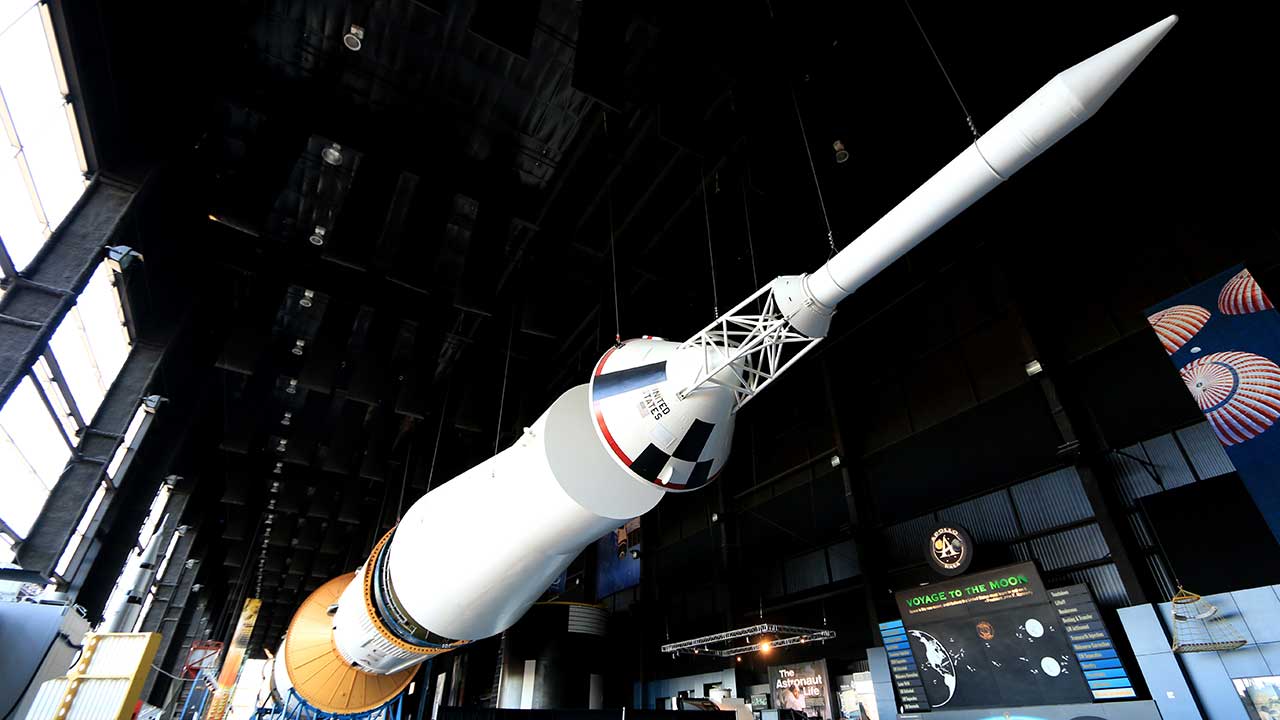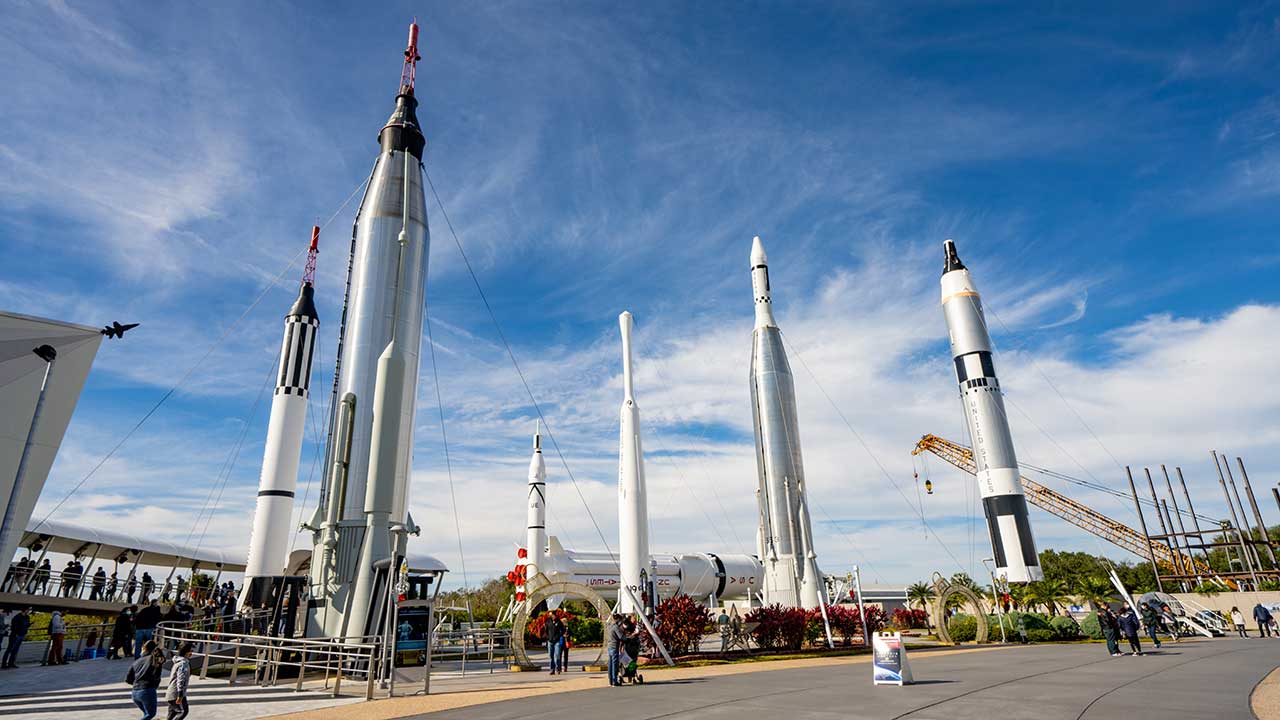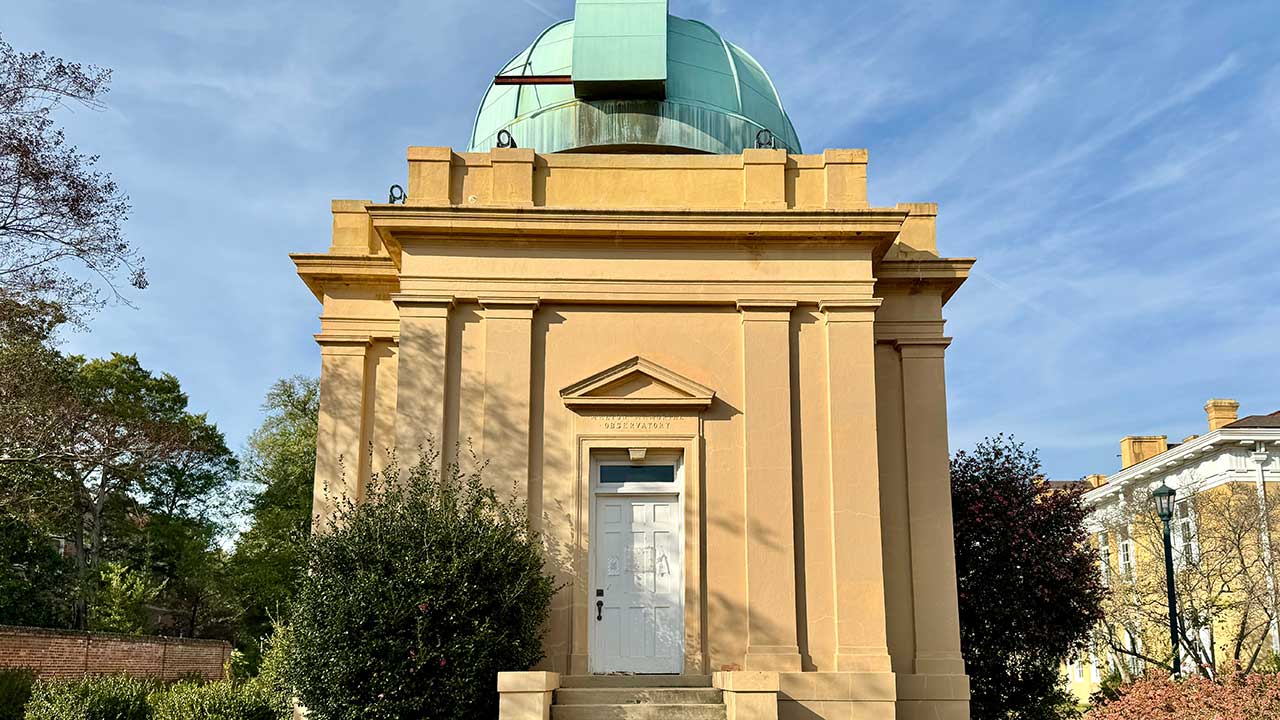April is Global Astronomy Month, and it has a simple, yet effective mission — encouraging people to look up.
From backyard stargazers to professional scientists, Global Astronomy Month is for everyone. And thankfully, the Southeast is home to some of the country’s most famous space-centered landmarks and museums.
If space is calling your name, here are a few places you can learn about or look at the cosmos.
U.S. Space and Rocket Center — Huntsville, Alabama

If you’re looking for spacefaring history, go no further than Huntsville, Alabama. Its U.S. Space and Rocket Center is where engineers developed the rockets that sent man to the moon and some of the first International Space Station models were designed and built.
These days, the site is home to the Apollo 16 command module, an Apollo 12 moon rock, a Saturn V moon rocket, and much more. You can also test your limits on Moon Shot and G-Force, simulators that give you a taste of what taking off in a rocket is like.
When it comes to space observation, the site’s crown jewel is the INTUITIVEⓇ Planetarium. The digital dome theater hosts daily shows and several special experiences, including guided painting sessions or musical performances.
Click here to learn more about the U.S. Space and Rocket Center.
Mayland Earth to Sky Park — Burnsville, North Carolina
The Mayland Earth to Sky Park in Burnsville, North Carolina, is exactly what it sounds like — a place where the community can learn about the natural world, from our planet to the cosmos. It also happens to be home to one of the Southeast’s largest public telescopes.
The Bare Dark Sky Observatory has a custom telescope with a 34-inch diameter mirror, plus a 14-inch planetary telescope. During community viewing nights, two astronomers help you use the equipment to see the moon, planets, and stars up close.
The park also features the Glenn and Carol Arthur Planetarium, a 36-foot projection dome that shows astronomy and other STEM-related shows. Get a front-row seat to the Milky Way, or see aurora borealis above your head without shivering in the cold of the far north.
Click here to learn more about the Mayland Earth to Sky Park.
Kennedy Space Center Visitor Complex — Merritt Island, Florida

We can’t write a story about space centers without mentioning the Kennedy Space Center Visitor Complex, NASA’s famous field center.
The space center’s rockets, space memorabilia, historic items and interactive exhibits are spread throughout several areas, each themed around a different era of space exploration. Heroes and Legends, for example, celebrates NASA’s early spacefaring programs, while others explore the moon missions, space shuttles, and NASA’s future.
But the Kennedy Space Center isn’t just a museum — it’s also full of hands-on experiences. You can take a bus tour through the old and new launch sites or even watch a live launch if one is scheduled. The space center also hosts frequent astronaut meet-and-greets, where you can ask questions and get an autograph.
Click here to learn more about the Kennedy Space Center Visitor Complex.
Coca-Cola Space Science Center — Columbus, Georgia
Owned by Columbus State University, the Coca-Cola Space Science Center isn’t just for students. The public is invited to join in on the fun, too.
For stargazing, you can’t miss the Westrock Observatory. It has more than 20 telescopes, a planetarium system and a remote-controlled solar observatory. Meanwhile, the Omnisphere Theater screens educational films about black holes, astronauts, the Hubble Space Telescope, and more.
The space center also has more than $17 million in artifacts from NASA’s space shuttle program — the largest such collection in Georgia. You can find four flight simulators in the same gallery, testing your skills in the sky and in space.
Click here to learn more about the Coca-Cola Space Science Center.
Melton Memorial Observatory — Columbia, South Carolina

Located on the University of South Carolina’s Columbia campus, the observatory has a 16-inch telescope that can be used to see the moon, other planets, stars, nebulae, galaxies, and other objects in the sky. The public is invited to enjoy the view at no cost on Mondays from 8-10 p.m.
The two-hour block includes a tour of the building, its dome and its other telescopes. If you can’t make it in person, the observatory also broadcasts live video from one of its telescopes during public viewing hours.
Click here to learn more about the Melton Memorial Observatory.

